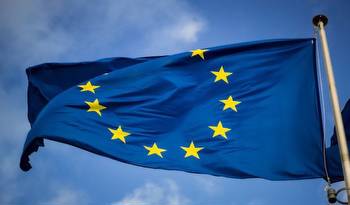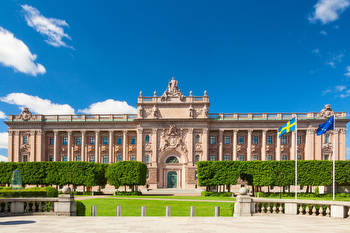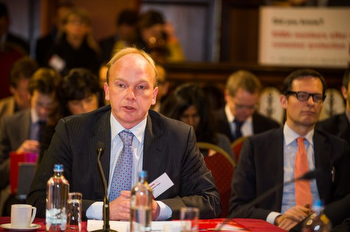How is online gambling regulated across Europe?

Analysis: regulation remains a highly politicised issue which is why different countries have different approaches to the issue
Online gambling is a growth industry in the EU with a forecasted gross revenue of €24.7bn in 2020. Given the size and scale of this, which represents 21% of all gambling across the member states, online gamblers may be surprised to discover that there is no sector-specific EU-wide legislation to regulate this growing and lucrative market.
Although the EU Commission pursued a formal policy for online gambling from 2012 to 2018, it was modest in ambition. It did not include a legislative proposal to establish common rules for industry access and player protection in the sector.
While it created a framework for administrative co-operation and information exchange between member states' gambling regulators, its principal achievement, a non-binding Recommendation on consumer protection for minors and players of online gambling, was only adopted fully in Denmark. The present Commission has not proposed a new policy for the sector, and consequently, regulation of online gambling in the EU remains a melting-pot of competing interests, meeting the needs of neither consumers nor the online gambling industry.
We use rte-player to manage extra content that can set cookies on your device and collect data about your activity. Please review their details and accept them to load the content.
From RTÉ Radio 1's This Week, a 2019 report on how Ireland is set to have a Gambling Regulator for the first time
The pandemic's effect on the online marketplace tested the EU’s framework for consumer protection, proving it sufficiently mature and robust to respond to sudden expansion and to protect online consumer trading. However, most EU consumer laws do not apply to online gambling transactions, thereby depriving them of common protection mechanisms and compulsory disclosure obligations.
The pandemic may also throw the absence of current EU strategy for online gambling into sharper relief. Warnings of pandemic-driven migration to gambling online as a potential source of entertainment saw some EU countries introduce restrictive measures for gambling operators. These ranged from outright bans, to curbs on advertising, bonuses, and deposit limits. Yet at EU-level, there was no response.
Since 1991, EU policy is that control of gambling is a public interest matter, coming within the remit of member states. As a result, gambling is regulated by each country individually, making it a highly politicised issue. This creates a fragmented patchwork of national gambling laws across the EU, representing the entire spectrum of possible regulatory solutions.
Without political support, the EU is unlikely to introduce common rules for online gambling
Regulatory diversity has consequences for consumers. Different levels of national gambling oversight mean that not all cross-border gambling websites will offer the same levels of protection for players. Lack of a level playing-field leaves consumers of online gambling exposed to risks of exploitation and under-regulation, and does little to achieve the high level of consumer protection to which the EU aspires for the digital marketplace.
Fragmentation also has consequences for the gambling industry. The absence of an EU-wide licensing regime creates costs and market barriers for gambling operators. In addition to a black market for illegal gambling websites, lack of common regulation creates a "grey" EU market of licensed gambling operators, licensed in their state of origin but whose licensed status is not recognised in the receiving state, thereby making their cross-border activities illegal.
If justified on objective grounds, member states may restrict both local and cross-border gambling offerings. This might include protecting consumers by controlling availability or channelling demand towards legal gambling websites. Legislators are allowed a significant degree of latitude and a wide margin of discretion when restricting access to national gambling markets.
We use rte-player to manage extra content that can set cookies on your device and collect data about your activity. Please review their details and accept them to load the content.
From RTÉ 2fm's Jennifer Zamparelli show, how the number of women reporting a gambling problem has risen at double the rate of men over the past five years.
Established in 1783, the Santa Casais a Portuguese charitable organization which manage that country’s national lottery for benevolent purposes, making it one of the oldest continuous national lotteries in the world. When the lottery began to operate online in 2003, the Portuguese legislature preserved its monopoly and extended it to online activities, effectively excluding online operators licensed in neighbouring member states. When this law was challenged, it was endorsed by the EU's Court of Justice, which observed that the "specific features" of online gambling presented risks that justified even greater controls by national authorities.
However, member states are not allowed an entirely free hand. The Court has repeatedly observed that while national governments retain the right to legislate, they do so only in the absence of harmonizing measures at EU-level. Nor can countries treat gambling as an untapped source of taxation to bolster national revenues. Proceeds of gambling taxation must be redirected to fund benevolent or public interest activities, although the range of justifiable causes is broad.
Countries which opt to open their gambling markets to competition may not deliberately discriminate against non-national operators. Until recently, the Commission actively used enforcement proceedings to remind member states that gambling legislation must respect Internal Market rules and avoid objectively unjustifiable or discriminatory measures. But in December 2017, it announced its intention to discontinue further enforcement procedures, reciting strategic reasons and pursuit of other political priorities.
This announcement reveals the heart of the matter: regulation of online gambling in the EU remains a highly politicised issue. Without political support, the EU is unlikely to introduce common rules for online gambling which address the often-polarised objectives of player protection, operator market access and national government strategy.
The views expressed here are those of the author and do not represent or reflect the views of RTÉ

































